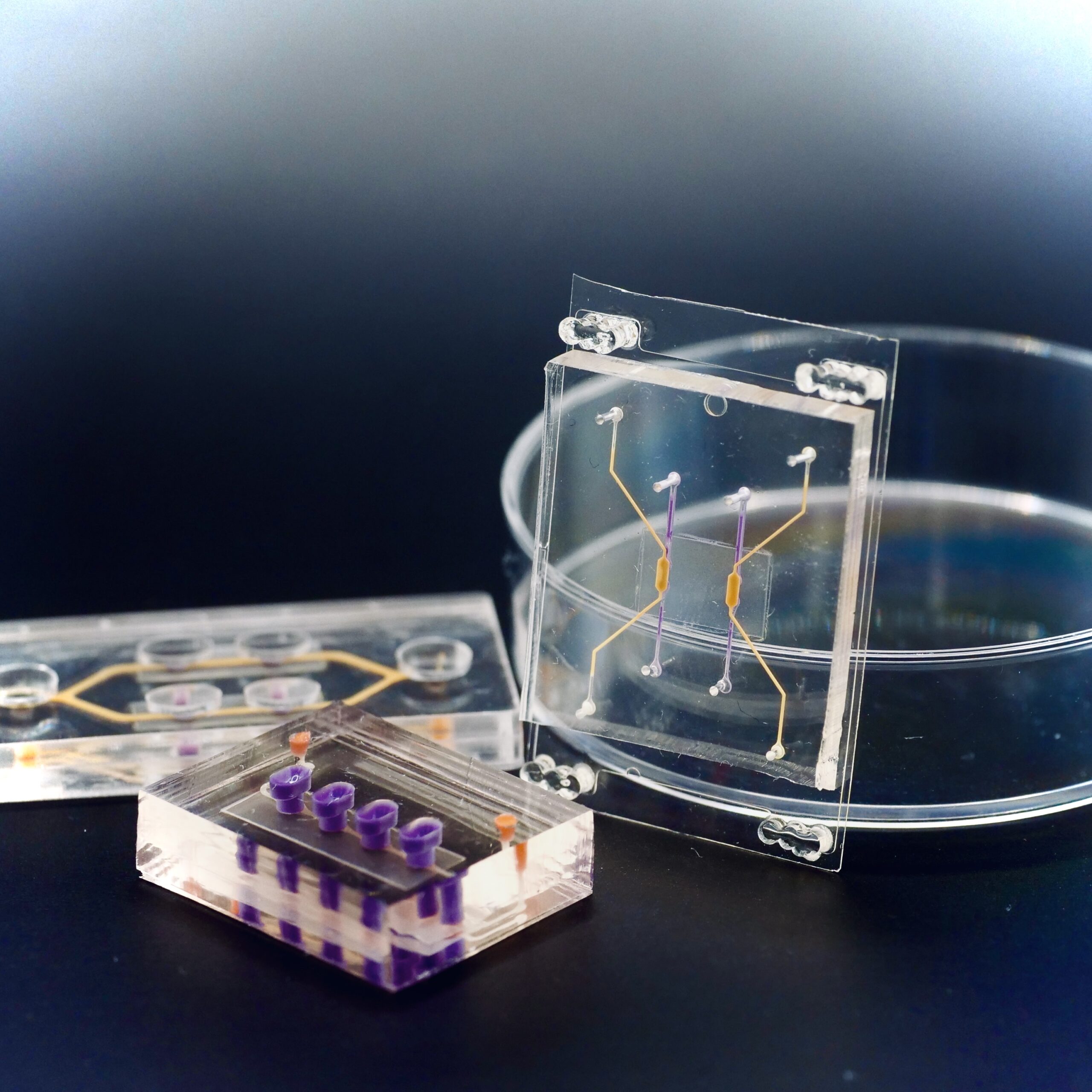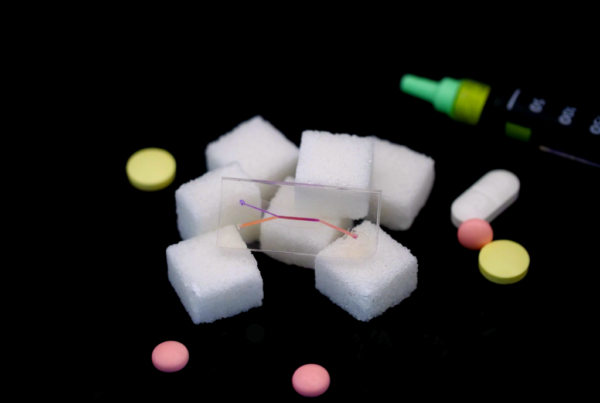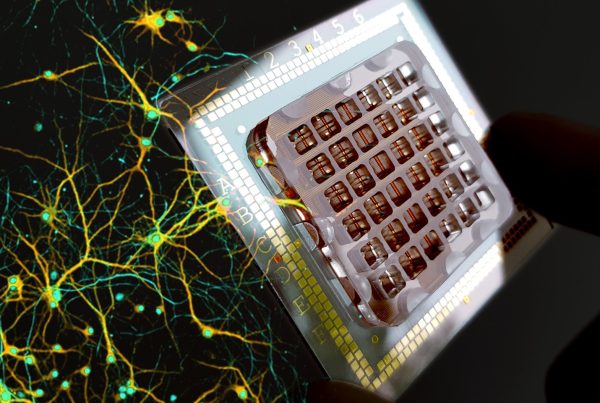Remaining the fourth most common cancer among Women globally, there is a pressing need for advanced human cervical cancer models to better understand the disease and develop new therapies.
In our most recent publication “Immunocompetent PDMS-free Organ-on-Chip Model of Cervical Cancer Integrating Patient-Specific Cervical Fibroblasts and Neutrophils”, published in Advanced Healthcare Materials, Phd student Elena Kromidas and team present a novel Cervical-Cancer-on-Chip model.
The microfluidic platform was specifically developed for replicating the 3D tissue architecture of human cervical cancer, by integrating cervical tumor-like clusters with human donor-derived fibroblasts in a hydrogel. We demonstrated that the small cervical tumors benefitted from the presence of fibroblasts by growing faster, emphasizing the impact of other cell types and the importance of complex co-culture models. Perfusion was leveraged to administer the widely used chemotherapeutic agent cisplatin at clinically relevant doses and schedules for up to 20 days. This treatment resulted in cell-killing effects and showcases the platform’s potential for drug testing. By introducing neutrophil into the vasculature-like channel, we observed their migration into the cancerous tissue and their capability to form web-like structures known as neutrophil extracellular traps (NETs), which have been shown to influence cancer progression and treatment. This platform has the potential to contribute to the development of new (immuno)therapeutic options.
Elena Kromidas, Alicia Geier, Adrian Weghofer, Hui-Yu Liu, Martin Weiss, Peter Loskill
Immunocompetent PDMS-free Organ-on-Chip Model of Cervical Cancer Integrating Patient-Specific Cervical Fibroblasts and Neutrophils
Adv. Healthc. Mater., 2023, 2302714, DOI:10.1002/adhm.202302714








